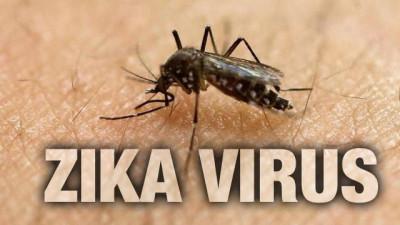 The World Health Organisation (WHO) recently declared Zika virus infection a global public health emergency, stating that the virus, which is now spreading rapidly in South America, is not just a threat to countries in South America or Europe but to the whole world. An official of WHO, Bruce Aylard, while speaking on the condition, noted that Zika virus, which has a short cycle of less than a week, with symptoms such as joint pain, fever, rash and conjunctivitis (red eyes), is a “much more insidious, cunning and evil” condition than Ebola virus because most people who contract the virus have no idea they have it.
The World Health Organisation (WHO) recently declared Zika virus infection a global public health emergency, stating that the virus, which is now spreading rapidly in South America, is not just a threat to countries in South America or Europe but to the whole world. An official of WHO, Bruce Aylard, while speaking on the condition, noted that Zika virus, which has a short cycle of less than a week, with symptoms such as joint pain, fever, rash and conjunctivitis (red eyes), is a “much more insidious, cunning and evil” condition than Ebola virus because most people who contract the virus have no idea they have it.
According to the WHO, more than 1.5 million Brazilians have been infected with Zika virus since early 2015, while the country recorded its third Zika-related death on 11 February, 2016. Zika is also biting hard in Colombia with WHO statistics indicating that there have been 31,555 cases of the condition in the country, 5,013 of those being pregnant women. The WHO also reported that the virus has spread to Mexico, the Caribbean, the Pacific Islands and Cape Verde; while over 50 Americans overseas have been infected.
What these grim statistics signify is that the whole world is at risk of this viral infection, which was first identified in monkeys in 1947 and humans in 1952 in Uganda and Tanzania. Even more alarming is that while the WHO has admitted that not all the effects of Zika virus is known yet, it has also categorically emphasised that there is neither a vaccine to prevent the condition, which is spread primarily through the bite of an infected Aedes specie mosquito, nor is there a medicine for its treatment.
The implication of this for a country as populous and mosquito-ridden as Nigeria is that, while the world earnestly awaits the production of preventive vaccines and curative medicines for the virus, the government and the entire citizenry must do all that is necessary to ensure there is no outbreak of this condition in our nation. It was apparently in light of this that Nigeria’s Minister of Health, Prof. Isaac Adewole, recently urged Nigerians to protect themselves from mosquitoes carrying the Zika virus by using mosquito nets.
Adewole, who made the call while speaking with the press in Abuja on prevention of Zika outbreak in the country, disclosed that the mosquitoes with Zika virus have always been in Nigeria, adding that Nigerian scientists discovered the virus in western Nigeria in 1954. Cheeringly, however, according to him, further studies between 1975 and 1979 revealed that 40 per cent of Nigerian adults and 25 per cent of Nigerian children had antibodies that made them to be immune to the Zika virus.
The health minister nevertheless urged Nigerians, especially pregnant women, to protect themselves from mosquito bites. He advised against travelling to countries affected by the virus in this period; while also appealing for calm, vigilance and the need to report any suspected case of acute febrile illness especially in pregnant women to hospital.
While we commend the health minister for the above precautionary suggestions, it is, however, our view that the government should go a step further by actually putting concrete machineries in place to prevent an outbreak. To begin with, the government must embark on massive sensitisation of Nigerians on this condition, as there is presently widespread misconception about it. Considering the success of the media campaign that tremendously helped Nigeria to overcome the dreaded Ebola disease outbreak of 2014, the media should be engaged to educate Nigerians on this condition.
Also, while it seems reassuring that the minister has provided information that suggests that some Nigerians may have immunity against Zika virus, the fact that the studies referred to were done way back in the 1950s and the 1970s is an indictment on us as a nation. For such outdated reports to still be considered a valid reference point at the national level shows that we are incapable providing up-to-date information and statistics on national health developments and challenges. Is there any surprise then that our approach to health emergencies is often belated and haphazard?
Indeed, in this particular instance, one would have expected the minister to know, as most of the scientific world seems to do, that viruses mutate over time, and relying on dated research while dealing with them is not only inappropriate but absurd. We therefore call on the Nigerian government to see that the National Centre for Disease Control, like its counterparts in developed countries, is properly funded, so that the agency can consistently provide latest data on health conditions like Zika virus disease for better prevention and management.
In the meantime, researchers in the country should be engaged to do a fresh study to validate the Zika virus immunity claim, so that response to preventive measures against the disease will not continue to be lethargic, as it presently seems to be.










